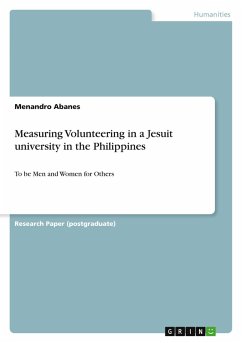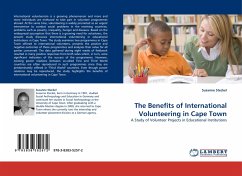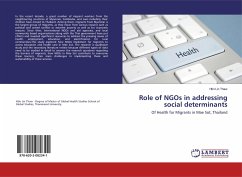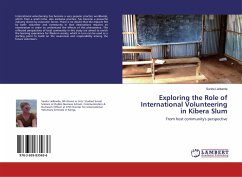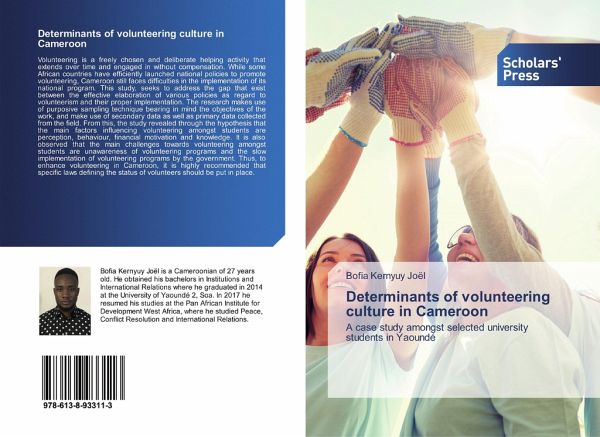
Determinants of volunteering culture in Cameroon
A case study amongst selected university students in Yaoundé
Versandkostenfrei!
Versandfertig in 6-10 Tagen
40,99 €
inkl. MwSt.

PAYBACK Punkte
20 °P sammeln!
Volunteering is a freely chosen and deliberate helping activity that extends over time and engaged in without compensation. While some African countries have efficiently launched national policies to promote volunteering, Cameroon still faces difficulties in the implementation of its national program. This study, seeks to address the gap that exist between the effective elaboration of various policies as regard to volunteerism and their proper implementation. The research makes use of purposive sampling technique bearing in mind the objectives of the work, and make use of secondary data as wel...
Volunteering is a freely chosen and deliberate helping activity that extends over time and engaged in without compensation. While some African countries have efficiently launched national policies to promote volunteering, Cameroon still faces difficulties in the implementation of its national program. This study, seeks to address the gap that exist between the effective elaboration of various policies as regard to volunteerism and their proper implementation. The research makes use of purposive sampling technique bearing in mind the objectives of the work, and make use of secondary data as well as primary data collected from the field. From this, the study revealed through the hypothesis that the main factors influencing volunteering amongst students are perception, behaviour, financial motivation and knowledge. It is also observed that the main challenges towards volunteering amongst students are unawareness of volunteering programs and the slow implementation of volunteering programs by the government. Thus, to enhance volunteering in Cameroon, it is highly recommended that specific laws defining the status of volunteers should be put in place.



